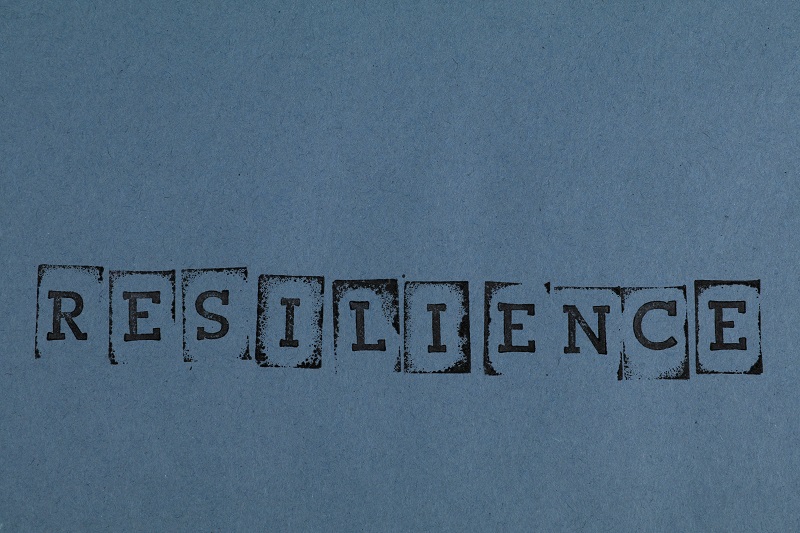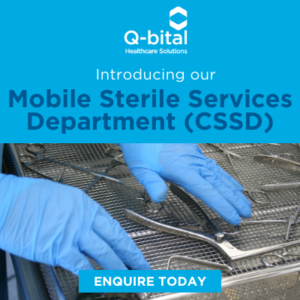Hospitals and health organisations must adhere to a number of standards and specific requirements, but that’s not necessarily the case for companies supplying them with products or services. In many cases, using a supplier with a documented Quality Management System (QMS) is important.
What is the ISO standard?
ISO 9001 is a standard that sets out the requirements for a Quality Management System (QMS), which can help businesses and organisations to be more efficient and improve customer satisfaction. A QMS is a way of defining how an organisation can meet the requirements of its customers and other stakeholders affected by its work.
The latest update of the ISO 9001 standard was made in 2015. Other ISO standards include ISO 14001, for environmental management, and ISO 45001, which covers occupational health and safety management, but there are many more.
Selecting a supplier should be about more than being able to deliver on time and at the right price. When looking to invest in infrastructure or equipment, or when partnering with a service provider, it is important to know that the chosen partner has a verifiable process for meeting customer requirements in the form of a QMS, such as ISO 9001.
Reasons for implementing a QMS
Organisations are often required to comply through regulatory prerequisites, for example to be eligible for government tenders, while others feel obliged to implement a certified QMS due to competitive forces in the market. However, an increasing number of organisations are starting the process to become ISO 9001 certified on their own initiative, and for their own reasons.
Those reasons usually include wanting to communicate to their staff, partners, clients, any other stakeholders and the outside world that customer satisfaction and quality are at the core of their business. They want the quality of their products and services to be clearly communicated, measurable and controllable so they can distinguish themselves from other suppliers.
The introduction of a quality framework typically brings order and structure, which usually benefits the quality of products and services. Having a good QMS means having reliable and efficient processes.
ISO 9001 is based on the idea of continual improvement. Designed to be flexible enough for use by many different types of organisations, it does not specify what the objectives relating to quality or meeting customer needs should be. Instead, it requires organisations to define these objectives themselves and continually improve their processes to reach them. Once these targets have been attained, they must be reassessed in a continuous quest for improvement.
A good QMS
Some organisations that are new to a QMS framework may succumb to certain pitfalls and end up with a QMS that is less effective than it should be.
For example, organisations may focus too much on theory and too little on how it will be implemented in practice, in an attempt to implement the ‘perfect’ QMS.
 Organisations often want to include as much detail as possible in the documentation. However, this can result in a more difficult application of the standard, and occasionally the amount of documentation can start to hinder the quality management processes.
Organisations often want to include as much detail as possible in the documentation. However, this can result in a more difficult application of the standard, and occasionally the amount of documentation can start to hinder the quality management processes.
Both customer requirements and organisations are constantly evolving, so the QMS must be able to evolve as well. If the QMS is too rigid and inflexible, it will become difficult to improve it over time.
Finally, the QMS has to be an organisation-wide effort, and will not work if supported by just a quality manager. It needs buy-in at all levels, and all staff members need to have a clear understanding of their roles and responsibilities within the system. Otherwise, they won’t feel part of it or be motivated to apply it.
Ultimately, a QMS is based on customer satisfaction – the goal is to achieve and maintain customer confidence. It is therefore vital to understand the customers’ requirements and expectations, and to measure satisfaction on an ongoing basis.
Benefits of selecting a supplier with ISO9001
Generally speaking, standards protect clients by providing assurance that a company and its operations and practices meet certain requirements. Standards also guide suppliers in optimising their internal processes and enabling them to become more efficient and competitive.
As a customer, using the services of an ISO-certified supplier has many advantages. Firstly, ISO 9001 is an internationally recognised scheme, and as part of the certification process the company is audited by an external and independent body against certain criteria.
This gives the customer confidence that the supplier is committed to quality and:
- has a continuous improvement process aimed at increasing customer satisfaction;
- has made all employees aware of their obligations in terms of product and service quality;
- meets the necessary statutory and regulatory requirements;
- will detect and identify problems in good time, to be able to quickly take steps to avoid the same mistakes in the future;
- has formalised and consistent processes, with homogenous performance criteria;
- has a system for managing risks and evaluating opportunities;
- applies internationally recognised good practice.
Globalisation has meant that supply chains have become increasingly complex and has raised service expectations. By adding a requirement for ISO 9001 to the supplier checklist, hospitals can ensure their chosen suppliers work in a standardised way, regardless of the country or the region they are based in.
One of the main aims of ISO 9001 is to achieve continual improvement in quality across every process, every product and every interaction. Customers will benefit from these ongoing improvements.
Under ISO 9001 teams must be provided with clear expectations, the tools to do their job and prompt, actionable feedback on their performance, so that teams feel empowered to provide a professional service.
An important part of supplier selection
It is surprising that only some organisations consider ISO 9001 certification as part of their evaluation criteria or supplier checklist.
A company that is ISO 9001 certified is committed to managing its business to ensure that customers’ needs are clearly understood, agreed and fulfilled, giving you peace of mind. This can be particularly important for contracts under which activities or processes are outsourced and the supplier takes on responsibility for providing a service.
The question is often asked whether a QMS is still relevant in 2021. Evidence seems to suggest that having ISO 9001 leads to lasting relationships between suppliers and their customers, and will only grow in importance to successful organisations. Having a QMS appears to help suppliers improve efficiency, staff engagement and communication – all of which contribute towards better service for their customers.






